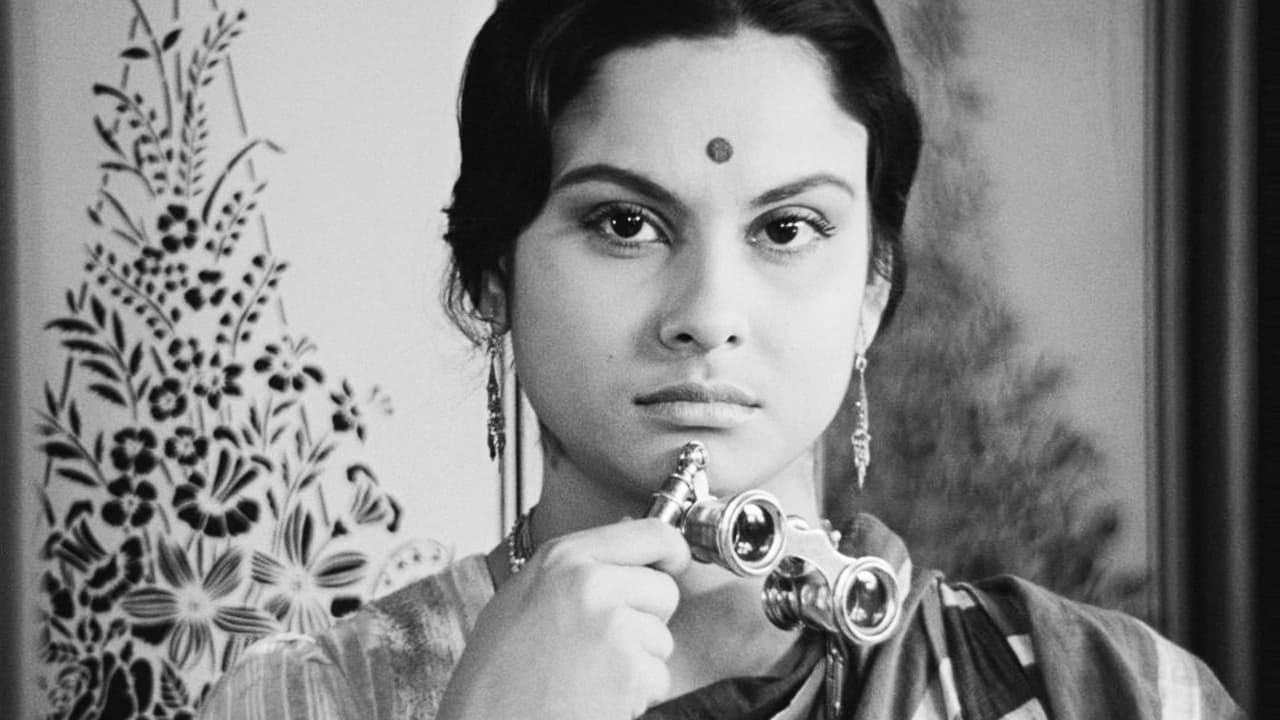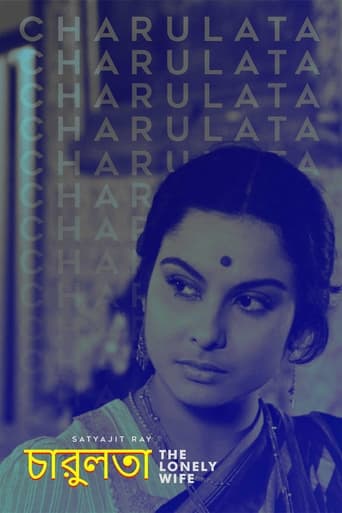

Truly Dreadful Film
... View Moreeverything you have heard about this movie is true.
... View MoreAlthough it has its amusing moments, in eneral the plot does not convince.
... View MoreTells a fascinating and unsettling true story, and does so well, without pretending to have all the answers.
... View MoreThis beautiful film from Director Satyajit Ray has a lot of things going for it, the story of repressed passion, of course, but also elements of philosophy and politics, as well as some absolutely sumptuous sets. Based on Tagore's novella 'Nastanirh', which itself was based on Tagore's own attraction to his brother's wife, 'Charulata' tells the tale of the growing attraction between a cousin (Amal, played by Soumitra Chatterjee) who visits a newspaper publisher (Shailen Mukherjee), and the publisher's wife, Charulata (Madhabi Mukherjee). The pair are encouraged to spend time together by the publisher, who loves his wife but is too busy with his job to spend time with her, and the feelings they begin to have are subtle and begin with discussions of writing. There are some nice moments with Amal singing to Charulata, as well as a fantastic scene with her swinging while he lays in the grass beside her. This is a subtle, deft, perfectly told story; the betrayal is contained to emotions, not physical acts, and is more powerful as a result. All of the actors turn in excellent performances, and Ray's direction is brilliant. The philosophical moments elevate the film ala Bergman, and here are a couple of quotes:"I was thinking all of life is like a rhythm. Birth death. Day night. Happiness sorrow. Meeting parting. Like the waves on the ocean, now rising now falling. One complements the other." "Even as Prince Abhimanyu, while still in the womb, learned only how to penetrate enemy formations, but not how to withdraw. So a river, emerging from the mountain's rocky womb, can only advance and knows not how to turn back. O river! O youth! O time! O world! You too can only march onward. You never turn back along the path strewn with memory's gilded pebbles. Only the mind of man looks back. The rest of creation never does."
... View MoreThis is one of the most beautiful and memorable films I've ever seen. Like all Ray's films, it moves slowly and gently. No one says what they think or want; it's all implied in the action. The cinematography is superb. There's a memorable scene where Charulata is swinging gracefully under a huge shady tree, singing a Bengali version of Ye Banks and Braes of Bonnie Doon - so incongruous in Calcutta, but beautifully capturing the way the family was at the cutting edge of the cultural collision between traditional Bengali values and the new world of their British rulers - while Amal, the younger brother-in-law who pays her the attention her husband doesn't, is lounging on the grass reading, dappled in sunlight. Love is everywhere, yet not a word is said. The story is based on Rabindranath Tagore's novella Nashta Nir (The Bird's Nest), which in turn is based on real life, a tragic event in Rabindranath's life. His elder brother Jyotindranath, a playwright, painter and failed businessman, found too little time for his wife Kadambari, who was Rabindranath's age, childless, and infatuated with literature - a very unusual combination for a Bengali woman in that age. (The Tagore women were pioneers: they showed themselves in public, loved the arts, one was the first woman to ride a horse on Calcutta's Maidan, its inner city park, another the first Bengali Hindu to wear a blouse under her sari). The young Rabindranath was Kadambari's companion, and she his Muse, to whom he dedicated his early books. How far it went is not clear, but eventually his father married Rabindranath off to a child bride, and a few months later Kadambari committed suicide.
... View MoreThis film is a real masterpiece. The characters are developed, there are no caricatures, everybody has different aspects that make them fully human. And the story, while simple, is profound. It describes a certain time, a certain people, a certain culture, yet it could happen anytime, anywhere, to anyone.Ray, like Bergman, Kurosawa, John Ford, and a few others, are directors who are totally immersed in their own culture, can clearly see its flaws, can clearly see the shortcomings of their people, yet they love them unconditionally. To them, no special effects are needed: all they need is a good story, and good casting.
... View More**POSSIBLE SPOILERS**Lacking the formidable cultural legacy of his earlier Apu trilogy, CHARULATA (Ray's 11th film) lacks nothing else if Ray's overall style was derived from neo-realism; CHARULATA proved that in his own uncluttered way he was also a master of style and subtle elegance.CHARULATA was perhaps Ray's most technically stunning work, featuring an elegant - if moody - story shot in a manner that finds Ray experimenting a bit. The story is set in an upper-class, intellectual household in 1890s India, and the period setting is rendered in great detail giving the film a lush, living beauty that (thanks to the stunning cinematography of Subrata Mitra) never crosses over into stuffiness. In a handful of scenes, a French new wave influence can also be seen primarily at the very end, and also in an earlier scene featuring the title character's recollections (in a quick-moving montage) of childhood memories. Based on a story by Rabindranath Tagore, the film explores marital complacency, as Bhupati (a wealthy publisher and political idealist, devotes the majority of his time to his publishing business, and to political interests, and grows increasingly isolated from his wife, Charulata. Charulata as an attractive upper-class wife, is essentially expected to manage the household, and not much else, and is increasingly both lonesome (Bhupati is a generally pleasant enough husband, though also a severe workaholic who is rarely around, and - in his sexual politics - he is a product of his time) and intellectually restless. In the midst of this, Bhupati's younger brother Amal arrives Amal, a romantically inclined bohemian and recent college graduate who is searching for work while also pursuing literary ambitions, and has temporarily moved into the household. Amal and Charulata are instantly drawn to each other first as intellectual companions, before an awareness of attraction is recognized. The two are plainly aware of the impossibility of the unrequited relationship, as Bhupati after discovering than an employee has been embezzling form him is then devastated to discover that his wife is turning away from him. To highlight the increasing distance between each of the three characters, CHARULATA is formalistic in it's look (with the handful of well-placed new-wave-inflected scenes adding textural complexity and emotionalism), with the classical touches of the cinematography underscoring the characters' ever-increasing distance from each other. Exploring sexual and class politics - with great depth and complexity - in a historical setting (while in its' exploration of idealistic, nationalistic politics making subtle connections to the present-day handling of the same issues in Bengali society), with flawless performances from all, CHARULATA is a beautiful and haunting masterpiece.
... View More